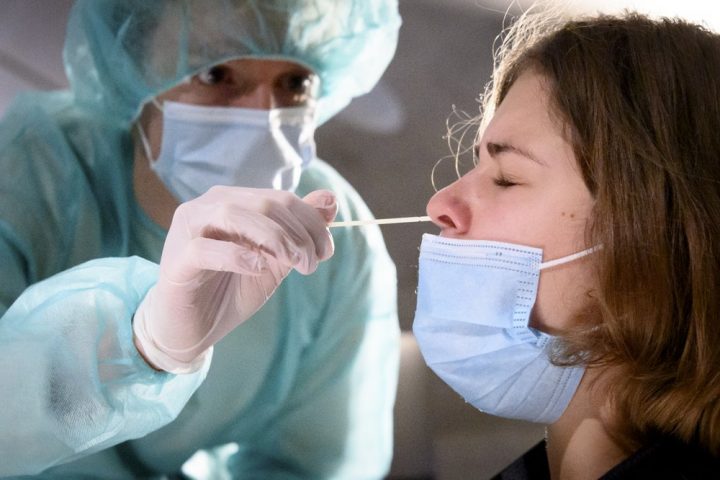More than three weeks after Premier Brian Pallister called on Manitobans to volunteer at COVID-19 testing sites, the government can’t say how many people — if any at all — have taken the premier up on his offer.

At the beginning of November, Pallister said volunteers were needed to help out at testing sites and to perform screening services at health facilities, and asked Manitobans to volunteer for the jobs using the province’s HelpNextDoorMB website.
“Most of these tasks that we need here are not highly-skilled, permanent civil service needs — they’re surge needs,” Pallister said at a Nov. 3 press conference.
“We have a pandemic right now and so, in the interests of time, and in the interests of taking advantage of the caring nature of Manitobans a bit, we want to access some help quickly.
“It’s not a time to permanently expand our civil service because of this pandemic.”

During an appearance on Global News Winnipeg Morning Wednesday, Manitoba’s Minister of Municipal Relations was asked if the government knew how many Manitobans have volunteered to help on the pandemic’s frontlines.

Get weekly health news
“We don’t,” Rochelle Squires said.
“We know that right now there’s over 3,000 active users on the app, and would I dare say that a significant number would be helping in health-care needs in one capacity or another for an RHA somewhere throughout the province … certainly more vital than ever when we’re needing to rely on those volunteers.”
At the time, Pallister’s request for volunteers was roundly panned by opposition parties and unions representing provincial health-care workers.
“The Premier cut front-line health care staffing to the bone to save money, and now he’s asking Manitobans to volunteer to pick up the slack and put themselves at risk,” said Manitoba Association of Health Care Professionals president, Bob Moroz.
“He should make sure we have enough qualified Allied Health and other professionals and that they’re properly protected and supported, instead of allowing staff shortages and outbreaks in hospitals and personal care homes.”

The HelpNextDoorMB website was originally set up in the spring to connect neighbourhood volunteers to help people get groceries, shovel sidewalks and more during the first stage of the pandemic.
Squires said Wednesday the site has had more than 7,600 users since it went live.
She reiterated the premier’s call for volunteers, telling Global News many of the older volunteers that would be helping regional health authorities aren’t able to right now because they’re at higher risk for COVID-19.
Pallister has said the province is looking for volunteers to direct traffic at testing sites, check in and register those coming in for tests, and do the initial screening at the sites. He also said volunteer temperature takers were needed at health facilities.
Questions about COVID-19? Here are some things you need to know:
Symptoms can include fever, cough and difficulty breathing — very similar to a cold or flu. Some people can develop a more severe illness. People most at risk of this include older adults and people with severe chronic medical conditions like heart, lung or kidney disease. If you develop symptoms, contact public health authorities.
To prevent the virus from spreading, experts recommend frequent handwashing and coughing into your sleeve. They also recommend minimizing contact with others, staying home as much as possible and maintaining a distance of two metres from other people if you go out. In situations where you can’t keep a safe distance from others, public health officials recommend the use of a non-medical face mask or covering to prevent spreading the respiratory droplets that can carry the virus. In some provinces and municipalities across the country, masks or face coverings are now mandatory in indoor public spaces.
For full COVID-19 coverage from Global News, click here.









Comments
Want to discuss? Please read our Commenting Policy first.